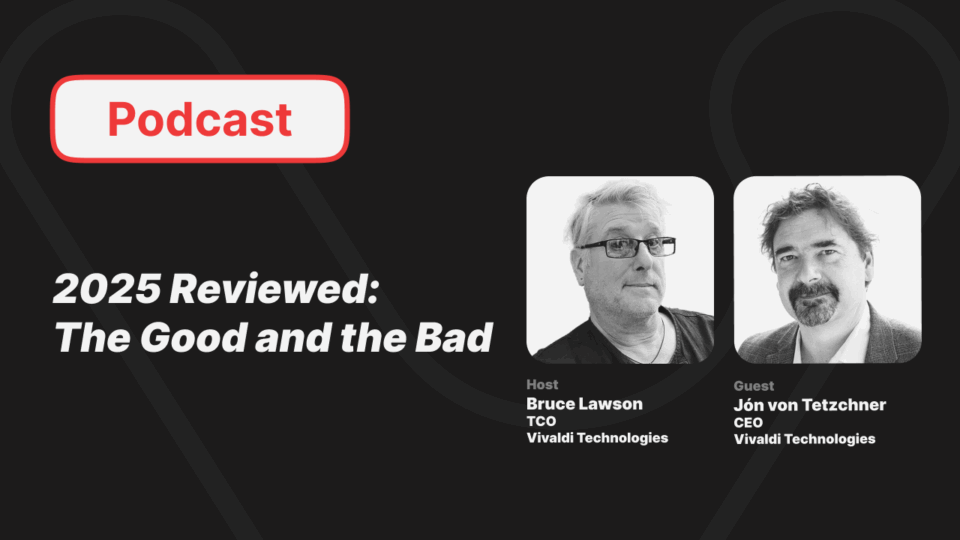
Read this article in español, 日本語.
Chromium, the open-source engine on which Vivaldi is based, has announced that its extension format has changed. Extensions that are not updated from its deprecated Manifest version 2 format will gradually stop working; many of those extensions are ad-blockers.
We’re not opposed to phasing out the old format; extensions that used it can be a performance drag, slowing down pages and allowing third-party scripts to modify them. One of our desktop developers, Daniel Aleksandersen, explains this on his personal blog:
The crux of the matter is the proposed deprecation of the webRequest API in favor of the newer declarativeNetRequest API. The webRequest API let extension developers intercept all network requests, pause them while they evaluated and blocked or modify them in JavaScript, and only then begin fulfilling the requests. These are quite powerful capabilities with big privacy, security, and performance implications.
The ability to inject code that is not originally part of the extension bundle is being removed. This is a good thing for security. But inevitably, this means that any extension whose author hasn’t updated their code to the new format will stop working.
We will keep Manifest v2 for as long as it’s still available in Chromium. We expect to drop support in June 2025, but we may maintain it longer or be forced to drop support for it sooner, depending on the precise nature of the changes to the code.
Here at Vivaldi, it’s always been our policy to build the most important functionality into the browser, so you don’t have to trust an unknown third party and worry that it’s in danger of going away.
That’s why we have long provided our built-in tracker and ad blocker, which isn’t dependent on Chrome’s extension architecture, and we’re continually upgrading its powers and performance – In the upcoming Vivaldi 6.8, we have added support for the hosts file format, and we plan to include more features to our tracker and ad blocker.
Naturally the Vivaldi Tracker and Ad-Blocker is customisable, so you can add lists of sites to block (or, conversely, which sites to allow ads from if you want to see them and contribute to the content provider’s revenue).


